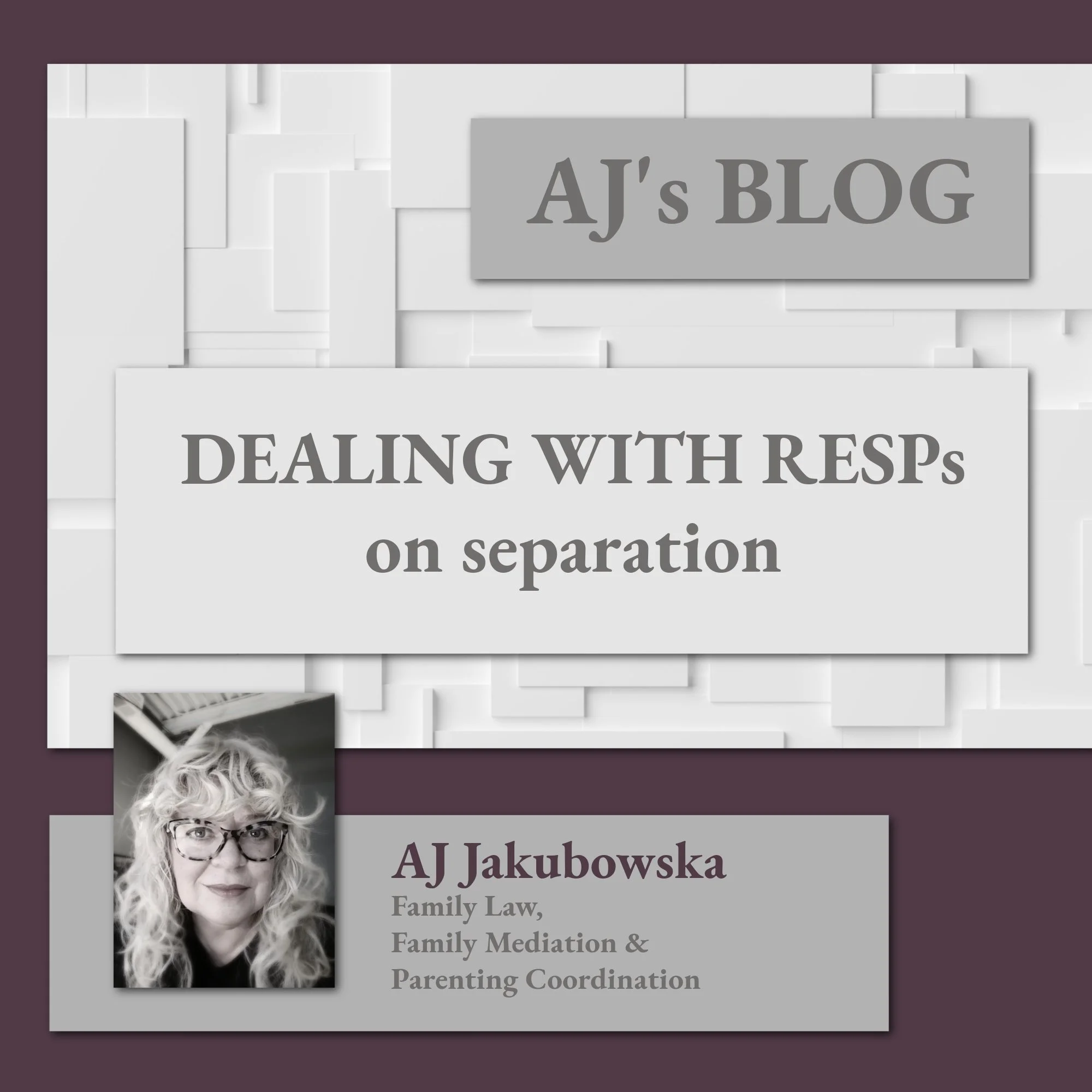Dealing with RESPs on separation
Often, one issue parents need to tackle when they separate is what to do with the children’s RESPs. One or both parents may have contributed to such RESPs before the separation and now, decisions will need to be made about them.
To begin with, I am going to identify an important issue related to RESPs, and that is the question of whether the balance in the account belongs to the subscriber parent or to the child. Case law is not consistent on this issue, meaning that judges have rendered different decision on this point. Some accept the idea that a trust is established, with the child being the beneficiary, when the account is set up by the parent or parents – and this could mean the funds belong to the child. Some do not. Why is this an issue in the first place? Because for the purposes of property division on separation, married spouses account for the value of all assets and debts in their name as at the valuation date. The question is, therefore, whether the balance in an RESP account is to be included in the list of a party’s assets. Based on my experience, I find that in most cases, the value of RESPs is not included in either parent’s “side of the ledger”. Parents looks at the funds as belonging to the children and then work on the mechanics for using those funds post-separation. Most parties identify on their sworn Financial Statement that RESP accounts for the children exist but their value is not included in the running tally required to establish if either party owes the other an equalizing payment.
The most common task parents face on separation in connection with RESPs, and for the duration of the children’s entitlement to child support, is who can use the balance of the RESPs (or any portion of it) to reduce their contribution to section 7 (special or extraordinary) expenses. Returning to basic principles for the moment, and to assist you in understanding the issue here, the children’s special or extraordinary expenses, addressed in section 7 of the Child Support Guidelines (both provincial and federal) are shared by parents proportionately to their respective incomes. What if only one parent contributed to the RESPs before the separation? Can they use the balance at separation as credit toward their expected contributions to the child’s post-secondary education costs? What happens if after the separation, one of the parents continues to contribute and the other does not? Who gets to use those contributions to their credit? Can the court divide the balance in a single RESP account into two accounts? Can the court give one parent control over the RESPs?
Here are some general principles, with caveats where answers to the questions posed are not clear:
1. Most judges agree that that the balance at separation in an RESP account is to be used for that child’s education “off the top”. In other words, if the total expenses for a year are $20,000 and there is $10,000 in RESPs available to be used in that year, the parents share proportionately to their incomes only $10,000 because the other $10,000 is taken care of by the RESPs;
2. Most judges agree that when it comes to post-separation contributions to RESPs, the contributing parent has the right to receive credit towards their proportionate contribution to the expense. In other words, if Parent A contributed $1,000 to an RESP post-separation, that $1,000 is used in the year in question, and the parent otherwise owes $1,500 based on section 7 of the Guidelines, Parent A now owes only the balance of $500; and
3. Judges do not agree if they have the power to split an RESP account, and at least one judge has ordered that one parent assume control of an RESP account, in the child’s best interests.
From a practical perspective, most separating parents agree to use pre-separation RESP contributions “off the top”, and their own post-separation contributions to their individual credit. Most also agree that the other parent’s name will be added to any pre-separation RESP account that is in only one party’s name. Some parents split the pre-separation RESP account into two after the separation.
The more issues related to RESPs you can agree on, the better. If you do, you will be eliminating the cost of having to resolve them before the Court, and importantly, any delays that may come in funding your child’s actual post-separation education costs. After all, you set up the account to benefit your child in the first place – keep this original intention in mind when considering whether to cooperate with the other parent or make the RESP an issue for the court to resolve.
To learn more about my Family Law, Family Mediation & Parenting Coordination services, call us at (905) 898-8500.
©AJJakubowska


